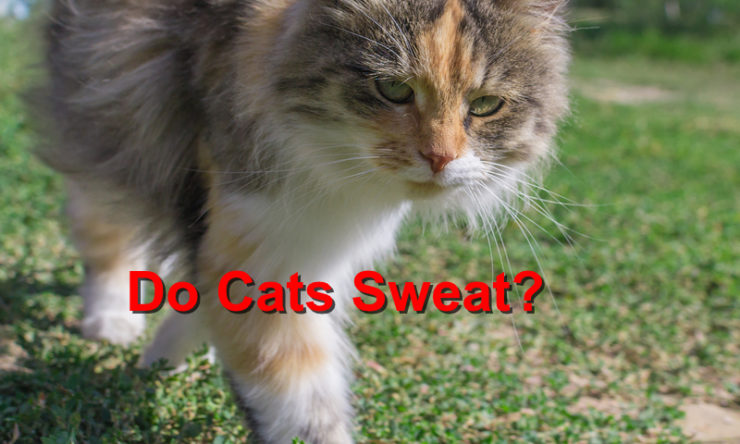Do Cats Sweat?
The genealogy of domestic cats goes back to the wild cat species in the deserts of Arabia and Africa. That means that cats are originally from scorching environments. Even in the hottest summers, you will never see a cat sweating. Learn how cats keep cool here below:
Does a Cat Sweat?
While you might never see a cat sweating, these furry animals have an efficient internal cooling system. Different from humans who have sweat glands throughout the body, these sweat glands in cats are located in specific hairless regions. These areas include the lips, chin, paws, and on the skin around the anus.
Once the cat’s body temperature gets too high, these glands start sweating. As the sweat begins evaporating, it creates the cooling effect. Stress may also cause the sweating effect, which is why you will see wet footprints in a vet clinic when a cat is being examined.
How cats try to stay cool
The minimal sweat glands in cats mean that that sweating alone will not be sufficient to manage high temperatures. Cats also use other methods to cool themselves, including grooming. That is why you will notice that your cat’s grooming habits will increase during the hot summer season.
Besides grooming, cats also sleep during the hot times during the day. They will sleep through most parts of the day and only become active at night. Domestic cats like to find a cool place where they can spread their body on the cold surface for heat dissipation.
Do Cats Pant?
Unlike dogs, panting isn’t a regular activity for cats. Even though cats can still use panting as a way of cooling down, it is often a symptom that the cat is under too much stress or that they have underlying lung or heart diseases. If your cat starts panting, move them to a cooler area, and provide cold water. However, if the panting doesn’t stop, it could indicate heatstroke or heat stress, and you should immediately consult your vet.
Does Excessive Sweating Signify Underlying Medical Conditions?
In most cases, cats never sweat excessively. Nevertheless, if your cat is living in heat-regulated space and is still leaving sweaty footprints, it could point to anxiety or stress. Luckily, a certified vet or behaviorist can address these problems quickly.
Other cat owners have noticed excessive sweat production near the mouth. In such cases, the cat isn’t sweating and is salivating excessively because of any stomach or dental problems. Cats will even drool when they are petted. However, if your cat is overly wet around the mouth, then contact your vet.
References: PetMD, Indiana public media, PetMD


